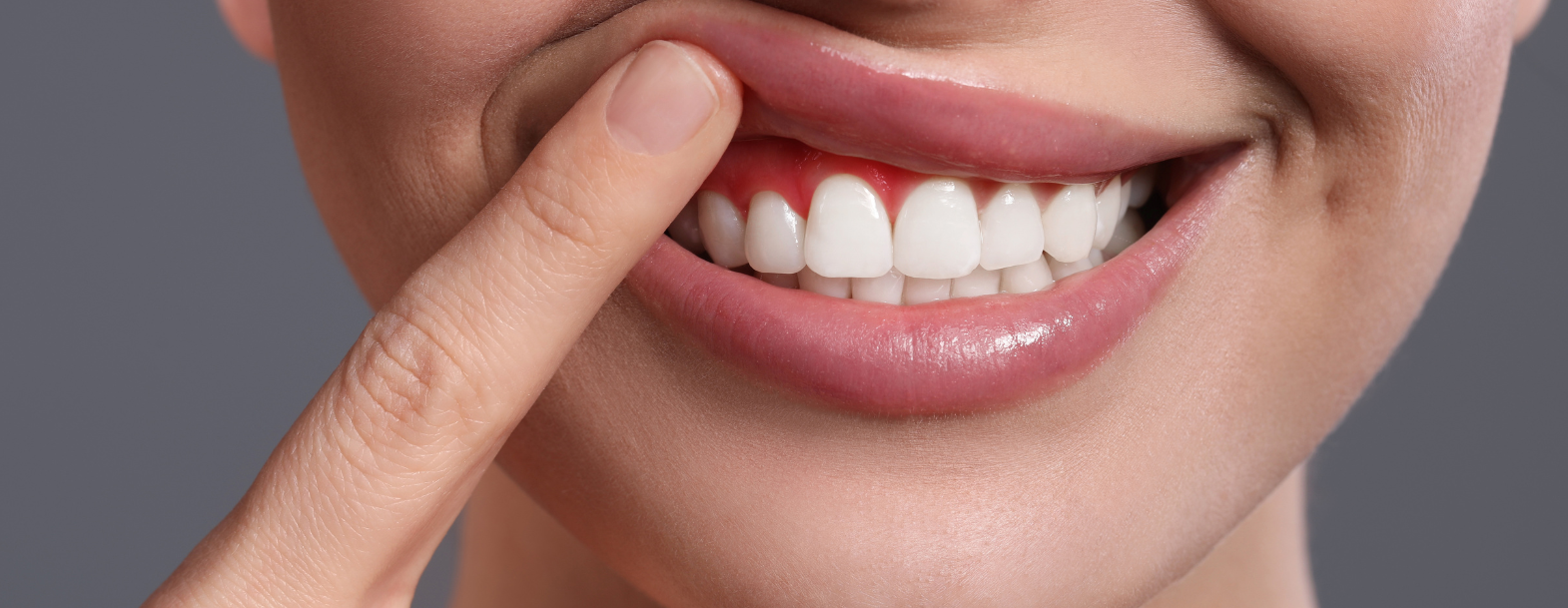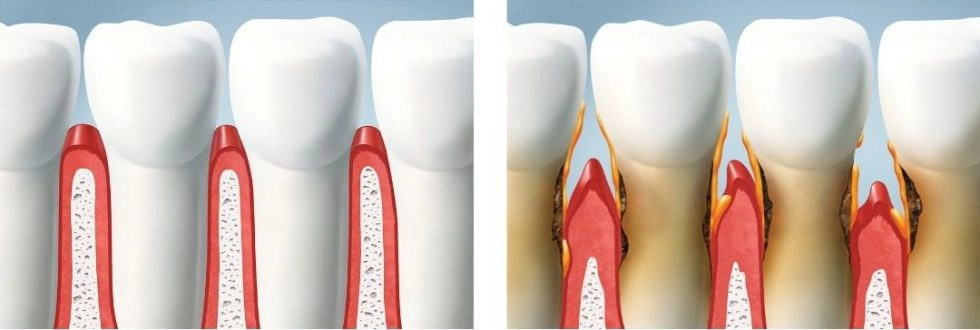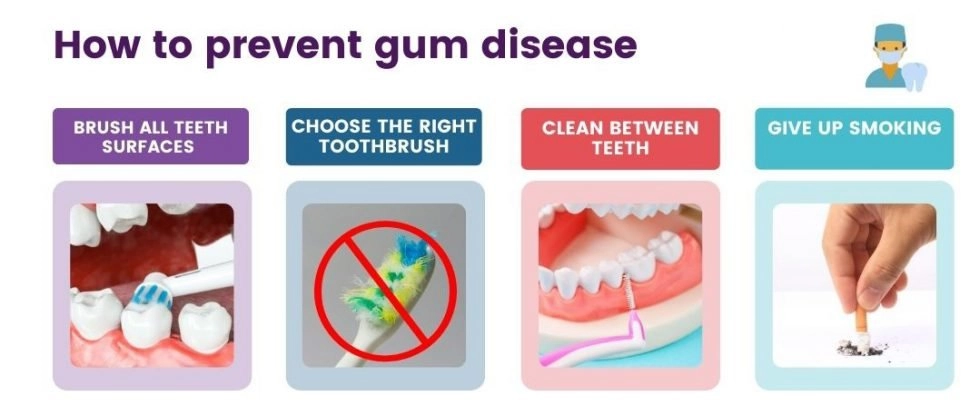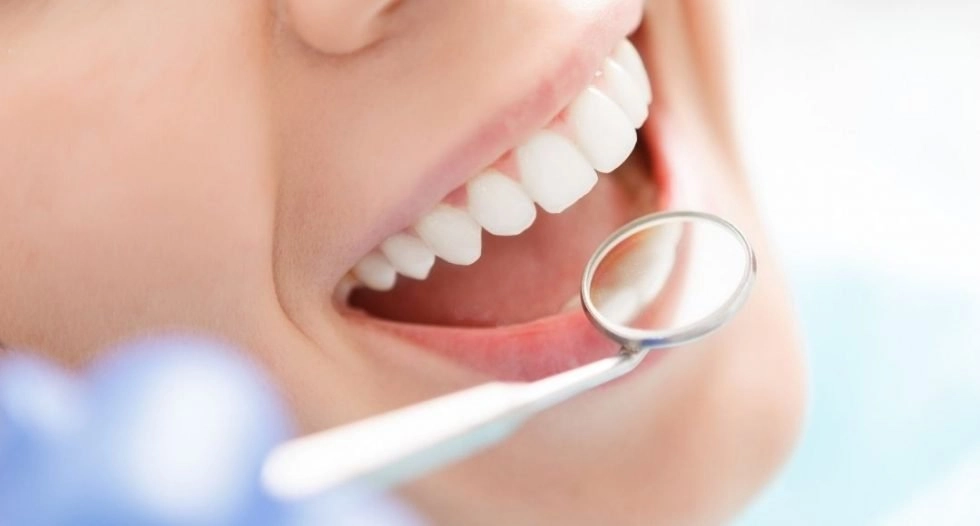What is gum disease and how do I prevent it?
- Home
- /
- Blog
- /
- Dental Advice
- /
- What is gum disease and how do I prevent it?

Gum disease describes the swelling, soreness or infection around the tissues supporting the teeth. The main forms of gum disease are gingivitis and periodontitis. Dermal-filler
Gingivitis is an inflammation of the gums. They appear very red and swollen around the teeth and may bleed when you brush your teeth.
Gingivitis, if not treated could turn into periodontitis which affects the supporting structures & tissues of the teeth. As it gets progresses, it causes the destruction of these tissues which can eventually cause the teeth to become loose and fall out.
Yes, 95% of adults will suffer from gingivitis at some point in their life. However, gingivitis is reversible with the improvement of your oral hygiene routine.
Gingivitis is caused by bacteria that is found in plaque, a white sticky film that forms on the surface of the teeth and gums. If not brushed off, within a few days it can start to irritate the gums causing inflammation and bleeding. If not removed, plaque calcifies into calculus (tartar) and the bacteria within this can cause periodontitis to occur.
If you have gum disease you will notice your gums are sore, inflamed and bleeding. You may have a bad taste in your mouth, and you may also have bad breath that does not go away.
The first thing is to visit your dentist for a thorough check-up of your gums and teeth. Your dentist will measure the area of gum around each tooth to see if there is any sign of periodontal disease. They might take x-rays to check to see if there is any bone loss. Once the dentist has made an assessment, the correct treatment can be prescribed.
The treatment will depend on how severe your gum disease is. Your dentist may refer you for treatment to a dental hygienist or to a specialist periodontist.
The aim of gum disease treatment is to stop the inflammation of your gums and ensure the thorough removal of plaque and calculus deposits from all your tooth and root surfaces.
Once these deposits have been removed, and are maintained, the cause of the gum reaction can be eliminated, and the destructive swelling controlled. Your dentist or hygienist will then advise you on methods and techniques to improve your oral health that is suitable for you.

It is vital that teeth surfaces are kept clean and free of plaque. This will allow the gums to return to a healthy, non-swollen, non-inflamed state. The most important aspect of treatment for gum disease is an improvement in oral hygiene and a reduction in the number of deposits on the teeth. Make sure that you attend regular check-ups with either your dentist or hygienist.
Gingivitis can reoccur if poor oral hygiene continues. So it’s important to keep up excellent tooth brushing and interdental cleaning yourself at home.
The damage from periodontitis, can’t be reversed but it can be maintained and stabilised to stop any further destruction and tooth loss.

You need to make sure that you remove all the plaque from all surfaces of your teeth every day.
It can be inherited from your parents as the condition can run in families. Many studies have shown that it is far more common and destructive in smokers. Similarly, diabetes will exaggerate the destructive response to plaque. Other conditions that exacerbate the symptoms of periodontal disease include pregnancy hormones, stress, and some medications.
Get in touch with Larkham house if you are worried you may have gum disease. We not only have the right caring staff to treat you but the latest CBCT imaging scanner for advanced diagnosis for complex procedures and patient care.
Our dentist Dr Vivek Giddani BDS, Pg DipDCSc (U-Lon), LDSRCS (Eng), MFDSRCS (Ed), MCGDent, Pg DipPerio (U-Plym) GDC: 185505 has a special interest in Periodontology (Gum Disease) and is trusted and used by referring dentists across Devon to treat advance dental cases.
